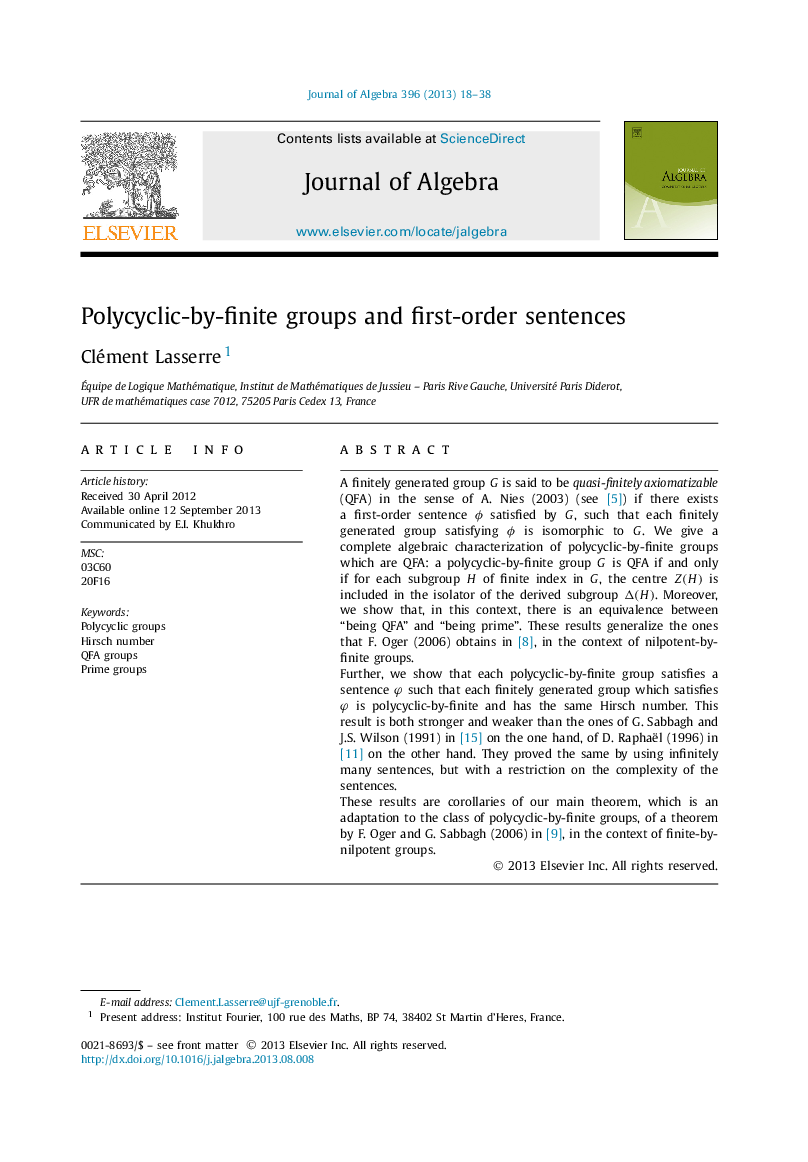| Article ID | Journal | Published Year | Pages | File Type |
|---|---|---|---|---|
| 4585025 | Journal of Algebra | 2013 | 21 Pages |
A finitely generated group G is said to be quasi-finitely axiomatizable (QFA) in the sense of A. Nies (2003) (see [5]) if there exists a first-order sentence ϕ satisfied by G, such that each finitely generated group satisfying ϕ is isomorphic to G. We give a complete algebraic characterization of polycyclic-by-finite groups which are QFA: a polycyclic-by-finite group G is QFA if and only if for each subgroup H of finite index in G , the centre Z(H)Z(H) is included in the isolator of the derived subgroup Δ(H)Δ(H). Moreover, we show that, in this context, there is an equivalence between “being QFA” and “being prime”. These results generalize the ones that F. Oger (2006) obtains in [8], in the context of nilpotent-by-finite groups.Further, we show that each polycyclic-by-finite group satisfies a sentence φ such that each finitely generated group which satisfies φ is polycyclic-by-finite and has the same Hirsch number. This result is both stronger and weaker than the ones of G. Sabbagh and J.S. Wilson (1991) in [15] on the one hand, of D. Raphaël (1996) in [11] on the other hand. They proved the same by using infinitely many sentences, but with a restriction on the complexity of the sentences.These results are corollaries of our main theorem, which is an adaptation to the class of polycyclic-by-finite groups, of a theorem by F. Oger and G. Sabbagh (2006) in [9], in the context of finite-by-nilpotent groups.
